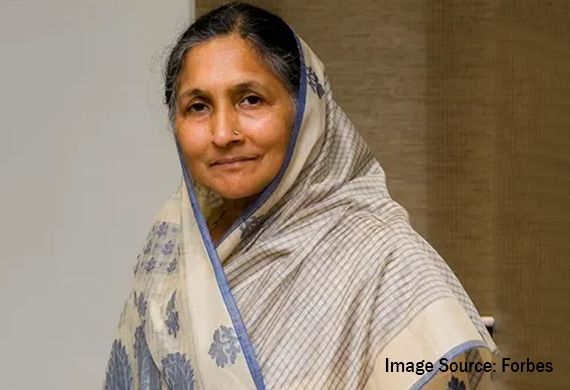
Safety of Women in Blue Collared Jobs
By: Kunal Patil, Co-Founder and CEO, WorkIndia | Tuesday, 25 April 2023
-The participation of women in blue collar jobs increased by an average of 37% in the past year-
The issue of women’s safety in blue-collar jobs in India has long been a matter of concern. Blue-collar jobs refer to those that involve manual labor, such as factory work, construction, and transportation. While these jobs have traditionally been male-dominated, there has been a shift towards women entering these fields in recent years. In the past year, WorkIndia’s platform has seen an average of 37% increase in participation from female workers in the blue-collar sector.
This shift towards female participation in traditionally male-dominated fields is a positive step not just toward gender equality and women's empowerment, but also for the growth of the nation. A nominal increase of 10% in the participation of women in the workforce has the potential to add $770 billion to the GDP of India. However, as the number of women in blue-collar jobs has increased, so have concerns about their safety and well-being.
In the past, women in blue-collar jobs were subjected to rampant harassment and discrimination in the workplace. They were often paid less than their male counterparts for the same job and lacked access to basic safety equipment or protective gear. In June 2022, a Research by SalaryBox revealed that in the blue-collar sector, women in India have made 19% less than men, even though roughly the same number of women are employed as men in salons, schools, supermarkets, and boutiques. However, with the changing times, there is a slight shift in the scenario for their safety.
Many organizations are now working towards ensuring the safety of women in blue-collar jobs. The Indian government has introduced several initiatives to address the issue, including the Sexual Harassment of Women at Workplace Act and the National Policy for the Empowerment of Women. These policies have helped to establish guidelines for addressing complaints of harassment and discrimination, as well as providing women with access to healthcare and other essential services.
To ensure the safety of women in blue-collar jobs, non-governmental organizations, and civil society groups are also playing an instrumental role in advocating for women's rights and improving working conditions. These groups provide training and support to women workers, as well as campaigning for better pay, improved safety protocols, and access to healthcare and family planning services.
Furthermore, companies have implemented various initiatives such as training programs on self-defense and communication skills, conducting background checks, providing personal protective equipment, hiring on-site security personnel, establishing reporting systems, offering flexible work arrangements, and providing employee assistance programs. These efforts are aimed at creating a safe and secure work environment for women in blue-collar jobs.
The changing scenario for women's safety in blue-collar jobs is also reflected in the attitudes of their male colleagues. While harassment and discrimination were once commonplace, many men are now taking a stand against such behavior and advocating for women's rights in the workplace. This shift in attitude is crucial to ensuring that women in blue-collar jobs feel safe and respected in their workplaces.
In conclusion, the increase in women in blue-collar jobs in India is a positive step toward gender equality and women's empowerment. While concerns about their safety and well-being remain, the changing scenario is indicative of progress. With continued efforts from the government, non-governmental organizations, civil society groups, and companies, we can work towards creating safer, more equitable workplaces for all women in blue-collar jobs in India.
About the Author:
Kunal Patil is a purpose-driven leader with an impeccable track record of strategic decision-making and operational excellence. He has propelled his company to a position of notoriety in a relatively brief amount of time.
An alumnus of the Stern School of Business, NYU, Kunal commenced his career with Edelweiss Capital as Head of FIG Coverage, Investment Banking. He then contributed to the growth of ICICI Ventures as Head of the Education vertical. His other stints include working with Merill Lynch (New York & Mumbai), and PwC.
With a vast understanding of the financial discipline and a singular focus on empowering significant lives, Kunal began his entrepreneurial journey. Currently, Kunal holds the reins as Co-founder & CEO at WorkIndia, India’s largest blue and grey-collar job portal. Prior to this, Kunal was the founder of E-SAVE, a technology platform to inculcate savings amongst the middle-income segment of the Indian population.






